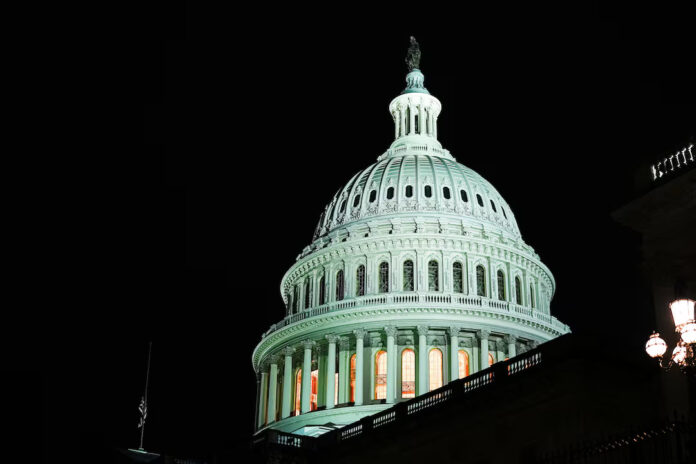
The U.S. Senate on Monday passed a bipartisan compromise to end the longest government shutdown in the nation’s history, concluding a weeks-long impasse that disrupted vital services, halted pay for hundreds of thousands of federal workers, and strained air travel nationwide.
The measure, approved in a 60–40 vote, won support from nearly all Senate Republicans and eight Democrats. The bill now moves to the Republican-controlled House of Representatives, where Speaker Mike Johnson said he hopes to bring it to a vote as early as Wednesday.
President Donald Trump has described the deal to reopen the government as “very good” and is expected to sign it into law.
Under the agreement, federal funding would be restored through January 30, temporarily averting layoffs and suspending Trump’s effort to downsize the federal workforce.
The deal would also keep key programs such as the Supplemental Nutrition Assistance Program (SNAP) funded through September 30, safeguarding food benefits for millions of Americans.
The compromise, however, does not secure an extension of expiring health insurance subsidies that cover 24 million Americans. While the bill sets up a December vote on the issue, it offers no guarantee of renewal, a point of frustration for many Democrats.
“We wish we could do more,” said Senator Dick Durbin of Illinois, the Senate’s No. 2 Democrat. “The government shutting down seemed to be an opportunity to lead us to better policy. It didn’t work.”
The shutdown, which began on October 1 after lawmakers allowed federal funding to lapse, has been politically costly. A late October Reuters/Ipsos poll found that 50% of Americans blamed Republicans for the standoff, compared with 43% who blamed Democrats.
Financial markets reacted positively to news of the deal, with U.S. stocks rising on Monday. Still, concerns persist about the country’s fiscal outlook: the temporary funding measure leaves the government on track to add roughly $1.8 trillion annually to its $38 trillion national debt.
Some Democrats have also voiced unease that the bill lacks provisions to prevent Trump from unilaterally cutting spending, as he has done in the past in ways critics say bypass Congress’s constitutional control over federal expenditures.
If approved by the House and signed by Trump, the measure would bring a temporary reprieve to federal employees and programs affected by the record shutdown, but with another funding deadline looming in January, the risk of renewed fiscal brinkmanship remains.
Source: Reuters
Written By Rodney Mbua


















